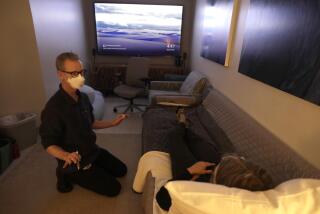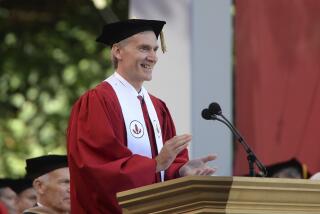Doing Science Under a Big Fist
- Share via
Those who believe that the breakneck pace of medical research might one day save their lives will be sobered by the story of Dr. Betty Dong, a UC San Francisco researcher whose important study of a drug called Synthroid had to wait seven years to be published.
The manufacturer of Synthroid, the treatment of choice for the many thousands of Americans suffering from hypothyroidism, had given Dong and her research team $250,000 to conduct the study, apparently expecting them to find that Synthroid was more effective than its cheaper generic rivals. When Dong discovered instead that patients could be treated just as effectively by four “bioequivalent” drugs --potentially reducing yearly U.S. health care costs by $356 million--Synthroid’s manufacturer began a campaign to discredit her research and prevent her from publishing the results.
Dong’s study finally saw print last week in the Journal of the American Medical Assn. Synthroid’s manufacturer, Knoll Pharmaceutical Co., says it decided to allow Dong to publish her study so “concerns about it could be evaluated in the proper context.” But it’s hard to believe that Knoll has only now realized what no responsible scientist has ever questioned: Research is most properly evaluated not by companies with a financial stake in its outcome but by science’s more neutral approach. Knoll barred Dong from publishing her research well after it had been scrutinized and revised in a rigorous peer review process overseen by the journal.
This is not to suggest that drug companies should have no involvement in the process. Knoll’s president, Carter H. Eckert, rightly says that drug companies should be entitled to review pre-publication drafts of the research they fund so they can take out patents and claim other legitimate intellectual property rights. But such reviews should take at most a month. In Betty Dong’s case, they took more than seven years, compromising not only academic integrity but American health and wealth.
Knoll’s ability to block the article derived largely from Dong’s having signed a contract promising she would not “publish or otherwise release” her results without its consent. It could be argued that scientists should never give their benefactors veto power over their research, but the answer is not that simple. There is, for instance, a growing tendency among academic scientists and administrators to bend to pharmaceutical company demands out of fear that not doing so means drug company money will go to other universities more willing to meet such requirements.
The first step toward solving the problem should be agreement among the nation’s top research universities, led by the Assn. of American Medical Colleges and the Assn. of American Universities, on common standards for accepting drug company money; this would deter companies from playing one university off against another. Drug companies have the right to profit from the discoveries they foster but not to impede studies essential to the advancement of medicine.






